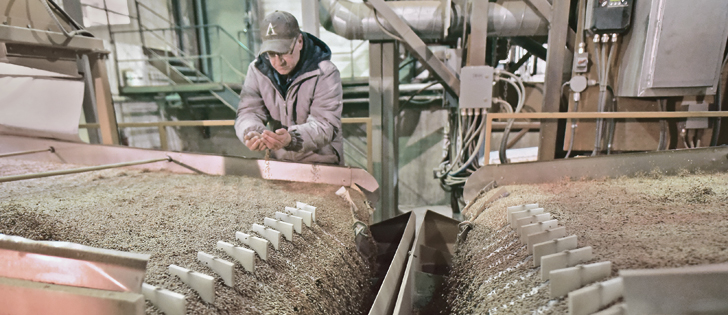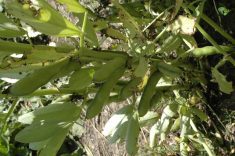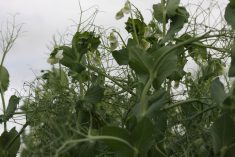A policy shift in India is jeopardizing a $1 billion export market for Canadian pulses.
India’s plant quarantine directorate has announced it will not extend an exemption to its methyl bromide fumigation policy.
The policy calls for all shipments of agricultural commodities to be fumigated at the country of export.
The problem is that it is often too cold to properly fumigate in Canada. India has had an exemption in place for countries like Canada since 2004 allowing fumigation to occur upon arrival in India.
Read Also

Farming Smarter receives financial boost from Alberta government for potato research
Farming Smarter near Lethbridge got a boost to its research equipment, thanks to the Alberta government’s increase in funding for research associations.
That exemption is going to expire March 31, which is causing anxiety for Canadian shippers and farmers.
“This is our biggest issue,” said Pulse Canada chief executive officer Gord Bacon.
“It is of great concern to farmers and to industry as well.”
Chuck Penner, analyst with LeftField Commodity Research, said it is a worrying development that could cause pulse prices to drop.
“It does have the potential to become serious,” he said.
He believes the uncertainty over what will happen after March 31 is why pulse exports have been so strong early in the 2016-17 marketing campaign.
Penner believes India is taking this action because it expects to have comfortable domestic supplies due to back-to-back good kharif and rabi crops.
India is the top buyer of Canadian peas and lentils by a long shot. It bought 1.29 million tonnes of Canadian peas worth $578 million and another 493,070 tonnes of lentils worth $460 million through the first 11 months of 2016.
That is why exporters are so unsettled by the uncertainty of what will happen after March 31. A letter distributed by the India Pulses and Grains Association sounds ominous.
“Any consignment/cargo arriving without methyl bromide fumigation from load port will be rejected by the plant quarantine department,” it states.
The letter says India is the only country in the world allowing an exemption to its plant quarantine policy and it noted that 64 countries around the world have banned the use of methyl bromide because it depletes the ozone layer.
“Why should India fumigate for all these countries in India and deplete its own ozone layer so that these countries can save their own ozone layer?” stated the letter.
The fumigation policy was put in place to eradicate stem and bulb nematodes in grain shipments. If the pest gets into the country, it could destroy India’s cherished onion and garlic crops.
Methyl bromide is the only fumigant that kills pests at all four stages of development, which are egg, larvae, pupae and adult.
Canada has submitted a data package to Indian authorities requesting India allow the Canadian Food Inspection Agency to issue phytosanitary certificates assuring cargoes meet India’s requirements rather than using fumigation.
The data package shows that between August 2013 and August 2014 the CFIA took more than 2,000 samples of pea shipments destined for India and none of them tested positive for ditylenchus dipsaci, which is the species of nematode on India’s plant quarantine orders.
A small portion of the samples did test positive for ditylenchus weischeri, which was first discovered in Canada in creeping thistle from Russia. India has the same creeping thistle, so the suspicion is that pest likely already exists in that country.
India has promised to quickly review and make a decision on Canada’s data package and its request to use phytosanitary certificates in place of fumigation.
“But that doesn’t tell me if ‘quickly’ is two days, two months or two years,” said Bacon.
“We need to know now.”
Pulse Canada has been working on the issue for months and continues to push India for an answer.
It takes 45 to 65 days for a vessel to travel from Canada to India, so anything shipped after Jan. 25 is potentially in jeopardy of being rejected.
One possibility is to divert bulk pea and lentil shipments to Singapore for fumigation, which has been done in the past. But that is a costly endeavour.
“The number that was cited when those vessels were being diverted is that costs start at $100,000 to do that,” said Bacon.
It would not be feasible to divert container ships for fumigation because the containers loaded with pulses would make up a small fraction of all the containers on the ship.
Penner said India still requires pulse imports and Canada is its top supplier, so it may have to rethink the policy change.
“The government in India doesn’t always think of all the implications when they introduce some of these things and then later on they may need to backtrack a little bit on it,” he said.


















